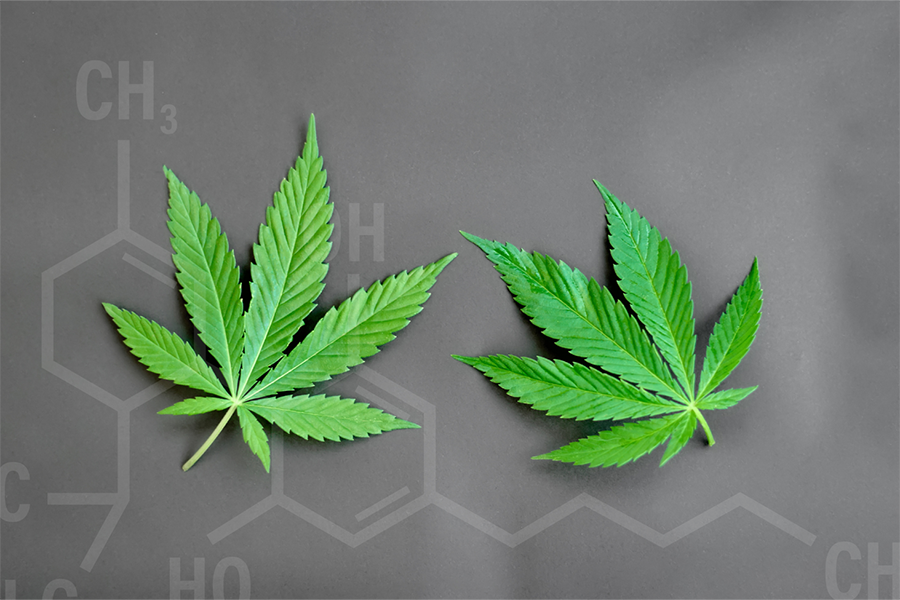Your cart is currently empty!
Cbd vs thc Oil: Understanding the Differences and Benefits

The Key Differences Between CBD and THC
CBD and THC are the two most abundant cannabinoid compounds found in the cannabis plant. They share some similarities, but there are a few differences:
Psychoactivity: THC produces euphoric and intoxicating effects when consumed. CBD is non-intoxicating and does not cause a high feeling.
Legality: THC products are regulated more restrictively than CBD products in most regions. High THC extracts are primarily only legal for medical use.
Medical uses: THC has benefits like pain relief, appetite stimulation and reduced nausea. CBD is more commonly used for health issues like anxiety, epilepsy, inflammation and sleep disorders.
Origins: THC is predominantly found in marijuana cannabis strains, while CBD occurs more abundantly in hemp varieties.
Mechanism: THC directly binds cannabinoid receptors in the brain and body, causing activation. CBD has a low binding affinity and instead modulates receptor signalling.
Given their differing properties, CBD and THC work best for different symptoms and conditions when used in the appropriate ratios and combinations.
Forms and Methods of Using CBD Oils
CBD oil has acquired immense popularity as a therapeutic supplement due to its wide-ranging benefits. Some common forms include:
Tinctures: CBD tinctures are alcohol or oil-based extracts consumed by placing drops under the tongue. Tinctures allow easy measurement of CBD dosages.
Capsules: CBD capsules provide standardized doses and are easier to ingest than oil drops. However, they have slower absorption when consumed.
Vape oils: CBD vape products can be added to e-cigarettes and vaped for faster absorption. However, inhaled CBD has lower bioavailability than sublingual use.
Edibles: CBD is infused into various food items and beverages like gummies, baked goods and tea. CBD edibles are a tasty way to try dosing cannabidiol.
Topicals: CBD creams, ointments and salves are applied externally for localized relief from muscle soreness and joint pains. CBD topicals do not reach the bloodstream or cause intoxication.
The optimal CBD dosage can vary substantially based on factors like body weight, metabolism, severity of symptoms and concentration of the product. It’s advisable to start low at 5-10mg doses and gradually increase until the desired therapeutic relief is achieved.
Using THC Oils for Recreational and Medicinal Purposes
THC oils allow for harnessing the psychoactive and therapeutic properties of the cannabis plant. Routes of using THC oil include:
Vape pens and cartridges: Preloaded vape pens offer a convenient way to consume THC discreetly. Cartridges contain THC distillate oil, sometimes blended with terpenes, and come in a variety of strains.
Tinctures: Like CBD tinctures, THC tinctures can be placed under the tongue but should be dosed carefully due to their potency. They offer easy and fast-acting effects.
Edibles: THC oils can be incorporated into beverages, baked goods, gummies and chocolates. Effects manifest slower when ingested but last longer. Proper dosing of edibles is essential to avoid undesirable effects.
Dabs: THC concentrates like shatter, budder and hash oil is vaporized using dab rigs and other specialized equipment. Dabbing provides instant effects and high bioavailability.
Topicals: Used similarly to CBD topicals but with the added benefit of localized THC absorption for pain and inflammation. Do not cause psychoactive effects.
Microdosing with 2.5-5mg THC is recommended for new consumers to assess tolerance. 10mg per dose is considered a whole serving. THC can cause impairment and motor coordination issues at higher doses. It should not be used before driving or operating machinery.
Choosing the Right Cannabis Oil
Various factors determine whether cbd vs thc oil is more suitable:
Intoxicating effects: CBD allows health benefits without altering mental state. THC should be avoided where intoxication is undesirable.
Legality: In regions where high-THC cannabis is prohibited, CBD oil provides a legal alternative. Where permitted, THC oil can be purchased.
Drug testing: CBD is unlikely to cause a positive drug test result unless products are inaccurately labelled with undisclosed THC content. THC metabolites can be detected in drug tests.
Medical condition: Both oils have therapeutic benefits. But CBD is better suited for health issues like anxiety, while THC is preferable for indications like poor appetite associated with chemotherapy.
Personal preference: Individual experiences can vary greatly. It often requires testing different oil ratios and strains to determine the optimal cannabinoid profile.
Product quality: With both THC and CBD oil, verifying the product purity and accuracy of contents through third-party lab test certificates is essential.
Homemade cannabis oil production carries risks due to chemical extraction methods. It is safer to purchase lab-tested products from regulated sources. Patients should consult a medic before utilizing any form of cannabis oil.
Conclusion
Despite their shared origins, CBD and THC have distinct differences regarding intoxication, legal status, and medical uses. But both offer promising health benefits. With cannabis oil, being an informed consumer, following dosage guidelines, and choosing high-quality products are crucial to maximizing therapeutic potential while minimizing risks.
FAQs
Q: What makes CBD oil and hemp oil different from one other?
A: Hemp oil comes from hemp seeds only and contains no cannabinoids. CBD oil is obtained from hemp flowers, leaves, and stalks, including CBD and other cannabinoids.
Q: Which one is better for anxiety cbd vs thc?
A: CBD shows more potential as an anti-anxiety treatment since it does not cause psychoactive effects like THC, which can induce paranoia.
Q: What is the proper way for making cannabis oil?
A: Dry and finely grind cannabis; slowly heat to decarboxylate. Steep in oil overnight to fully extract activated cannabinoids for potent, effective medicine.
In:
Leave a Reply
You must be logged in to post a comment.